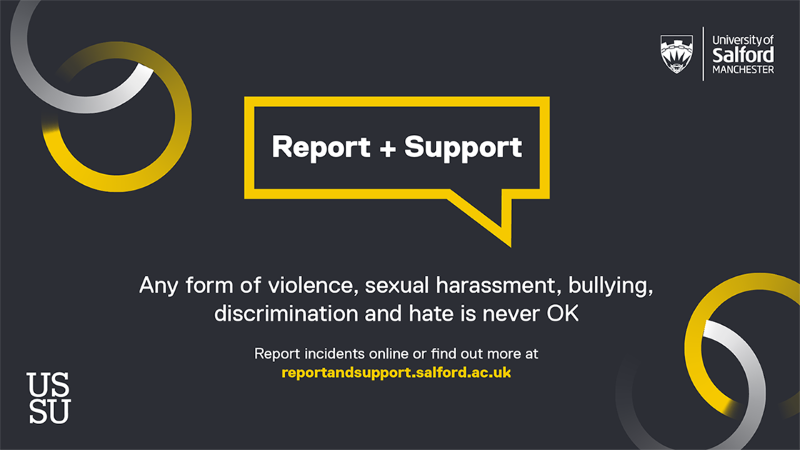We know conversations around extremism can be challenging and confusing at times, but it’s important that we all understand what this is. Extremism can take many forms, which we explore in this blog.
For Countering Hateful Extremism Week 2023 (1-7 May), we are focusing on Incels. Incels are part of the far right and mixed ideology. The far right is an increasing threat in the UK. They use a range of methods to radicalise and recruit. In order to protect yourselves, and the people you care about from becoming radicalised, our Respect, Culture & Behaviours team have shared some common questions and answers regarding extremism. Check them out below.
Questions & Answers
Last updated: Friday 28 April 2023
1. What is extremist behaviour?
In broad terms, extremism is the vocal or active opposition to conventional values. Extremism is often hallmarked by isolation, catastrophic or conspiratorial thinking, leading a person to explore violent or hateful ideologies. This can lead to hate crimes or terrorism.
Terrorism is an example of extremist conduct intended to advance a political, religious, or ideological cause. The process by which someone comes to adopt extremist views is known as radicalisation.
2. I’ve heard of extremism, radicalisation, and hate crime – is there a difference between all three?
- Yes. Extremist ideologies are those which encourage hatred, social isolation and divisions equivocate about the moral case for violence, leading to hate crime or terrorism. There are different typologies of extremist ideologies including:
- Far/extreme right
- Northern Irish related
- Left Anarchist/single issue
- Faith Claimed (those who seek to justify extremism using a faith)
- Radicalisation refers to the process by which an individual or group adopt extreme political, social, or religious views that can lead to violence. The term is often used when referring to those who carry out or encourage acts of terrorism.
- A hate crime is an offence committed against a person or property that is motivated by an offender’s hatred/hostility of someone. This hatred/hostility could be due to someone’s race, colour, ethnic origin nationality or national origins, religion, gender identity, sexual orientation, disability or alternative sub-culture (or perceived belonging to these characteristics).
You can find out more about these behaviours on our Report & Support website.

3. What about Incels?
The word ‘Incel’ comes from ‘Involuntary Celibate’ and is an online movement where, mainly men, harbour an extreme resentment and hostility towards those that are sexually active. Although connected online where most of the ideology is developed, most Incels carry out their crimes as individuals. Their attraction to the ideology comes from a place of lack of self – confidence, a failure in past relationships, and a frustration of not being able to start or maintain a positive relationship. This takes the form of extreme misogyny which can be fuelled by online Incel forums.
4. Are Incels on the rise?
Yes. Since 2014, there has been multiple mass killings from people who identify as Incels, all men. Although the incidents of this type in the UK has been low so far (most have been in the US, although the recent Plymouth shootings undertaken by Jake Davison, who self-identified as an Incel is a UK example) but reports of Incels are now the fastest growing right-wing extremism in the UK and have been fuelled by people like Andrew Tate’s huge popularity with young people. Incels generally portray extreme misogyny to the point of wanting to endanger life.
The rise in the popularity of online ‘stars’ such as Andrew Tate coincides with the rise in Incel ideology. Young people are attracted to Tate’s perceived wealth, business acremen and status and want to be like him. So, his misogynistic ideologies are seen as attractive to his young followers.
5. Who are the far right?
Far right extremism relates to those who hold extreme nationalist, xenophobic, racist, religious fundamentalist, or other reactionary views including white supremacist views. Some far right extremists advocate the use of violence and mass murder typically in pursuit of an apocalyptic race war. They promote their ideology online, including on social media.
6. How could I, or someone I know, be targeted?
The internet has created many new opportunities in communication, entertainment and knowledge, but it’s also given extremists the means to target, connect and communicate with people vulnerable to radicalisation. Exploiting the anonymity of online forums and social media sites, people are targeted by extremists wanting to recruit individuals to their cause.
Extremists use lots of different channels to try to connect with someone who they think could be vulnerable and persuadable. They will look at posts/tweets, likes and shares, social media profiles and friend lists to identify people to target.
It’s important to question the validity of the information you access online and not be tempted to believe easy explanations to complex issues.
7. What signs should I look out for to see if someone I know is being radicalised?
Signs of radicalisation can include things like:
- Isolation from family and friends
- Talking as if from a scripted speech or a sudden disrespectful attitude towards others
- Struggling with a sense of identity
- Becoming distanced from their cultural or religious background
- Questioning their place in society
- Experiencing racism or discrimination
- Experiencing a traumatic event
- Inability to explore critically their own belief system
More important than any one sign is the feeling that something is not quite right. Close contacts are best placed to spot any changes in behaviour. If you are worried trust your instincts and reach out for help and advice.
8. If I experience or witness this behaviour, how should I report it?
We encourage you to tell someone about extremism you experience or witness to ensure you, or the person affected, are supported and to help prevent things like this from happening in future. Report & Support is a safe and confidential way to report any unwanted behaviour you experience or witness to the University. You can also share images via this service, such as flyers and posters you see on campus that could be offensive. It’s vital you report any imminent threats to the police on 999.

9. How will I be supported if I experience extremism?
If you use our safe and confidential Report & Support service, one person from our Respect, Culture and Behaviours team will be assigned to your report. They will support you throughout the process. You can report anonymously but by not providing your name or contact details we cannot offer you support or take action against your report.
We also have our Wellbeing and Counselling team, who are able to provide support.

10. What is The University of Salford doing to prevent this behaviour?
The Counter-Terrorism and Security Act 2015 requires all universities to have “due regard to the need to prevent people from being drawn into terrorism”, this is know as the Prevent Duty.
We have a Prevent Task Group (made up of carefully chosen staff from across the University) who meet regularly to discuss cases, initiatives, training, and current trends. There’s also a Prevent Consultation Group which is a wider group made up of a much broader mix of staff. The purpose of this group is to ensure a wider cross section of the University and partners (Students’ Union) are being brought into discussions around Prevent and have an understanding of what is taking place locally and nationally. In addition to this, we work very closely with our local Prevent team, including Channel.
Last year, we launched a new channel on Report & Support, to allow students and staff to share images of any offensive materials they find on campus. When you report materials this will be sent to and dealt with by our Security and Estates team.
11. Where can I go to learn more?
Last year, we hosted a guest lecture and webinar on the ‘the rise of incels and the increased threat of the far-right’ and ‘hate crime, extremism and radicalisation’. You can catch up on these events via the Student Hub.
The Centre for Hate Studies offer free courses, so you can develop your understanding of extremism and hate crime.





